

|


|
 |
 |
 |
 |
 |
 |
 |
 |



 The ABC islands (Aruba, Bonaire and Curaçao) were discovered in 1499 by a lieutenant of Columbus, Alonso de Ojeda, who found the islands inhabited by Caiquetos, a tribe of peaceful Arawak Indians, who had fled Venezuela from a more blood thirsty tribe, the Caribs. De Ojeda claimed the islands for the Spanish, but because there was no gold there they were declared "useless islands." The Awarak community on was largely transported to work on Hispaniola, and nowadays no full blooded Indians are found on Curaçao. The island remained Spanish throughout the 16th century, but fell to the Dutch in 1634. Curaçao became an important trading post and a base for excursions against the Spanish. Some of the plantation houses "landhuizen," stem from this period. They were used for agricultural purposes, some as cattle farms and some were country estates for the rich merchant families that lived in Willemstad. Most of these "landhuizen" still exist today. Some of them have decayed into ruins, but others have been restored and serve now as restaurants or museums. Conflicts in Europe and the Americas in the 18th century led to Curaçao becoming a commercial meeting place for pirates, American rebels, Dutch merchants, Spaniards and Creoles from the mainland. In 1800 the English took Curaçao, but withdrew in 1803, only to occupy it again in 1807. In 1816, Dutch rule was restored and the island was declared a free port. In the 20th century the economy prospered with the discovery of oil in Venezuela, and the subsequent decision by the Dutch-British Shell oil company to set up a refinery on Curaçao because of its political stabilityand its good port facilities. The second world war brought the offshore industry to Curaçao to accommodate Dutch companies in Germany-invaded Holland. After the war, demands for autonomy from Holland began to grow, resulting in the Netherlands Antilles becoming an autonomous part of the Kingdom of the Netherlands. In 1982 the Shell refinery closed its doors, leaving many unemployed. Curaçao has now focussed on tourism as a substantial source of income besides its offshore industry. Curaçaoans distill their tap water directly from the sea, making it very pure, and very nice to drink. To meet the water needs of the whole island, a huge "water factory" is operated near Otrabanda. Entry Requirements: US and Canadian citizens need either a valid passport, or proof of citizenship in the form of an original birth certificate accompanied by photo ID, and an onward or return ticket. Most other nationals need only a passport. Visitors form the Dominican Republic, Colombia and Haiti require a visa. You will need to apply for a resident permit if you plan to stay for longer than three months. You are not allowed to work or live on Curacao without a work permit. Electricity: Electricity is 110 - 130 volts/50 cycles, similar but not identical to the US standard. Most 60 cycle electrical appliances from the United States will function properly, although appliances that have internal time mechanisms will not keep the correct time and hairdryers and curling irons may overheat if used for too long. Dual voltage appliances from Europe and South America will need an adapter plug, readily available on the island. Although electrical current is generally reliable, consider using a surge regulator for sensitive electronic devices and computers. It's a good idea to charge underwater strobes and videos on the regulated systems at dive shops and photo centers. Money Matters: U.S. currency is accepted everywhere, as are Travelers Checks and most major Credit Cards. Debit Cards are accepted at a few large shops and supermarkets. Prices are quoted in the national currency, the Netherlands Antillean guilder (also called the florin), abbreviated NAFl. or ANG. It is pegged to the US dollar at a stable rate of US$ 1 = NAFl. 1.77 for cash, 1.78 for traveler's checks. Exchange rates may vary slightly at stores and hotels. Bills of US$50 and US$100 can be hard to cash. The larger denominations of guilder bills (100 and 250) are hard to cash for small purchases. There are currently two versions of guilder coins in circulation. The old square nickel and the newer square fifty cent piece are among the few square coins in the world; along with the 21/2 guilder coin they are popular souvenirs, particularly for children. There is no black market and there are no restrictions on how much money you can bring into the country. Banking Hours: Banks are open Monday through Friday 8:00 a.m. to 3:30 p.m. The airport bank is open Monday through Saturday 8:00 a.m. to 8:00 p.m. and on Sunday from 9:00 a.m. to 4:00 p.m. Selected banks branches have ATMs that disburse US dollars. US dollars are accepted almost everywhere, traveler's checks less so. Bills of US$ 50 and 100 can be hard to cash. International credit cards are accepted at most major commercial establishments. Debit Cards are accepted at a few large shops and supermarkets. The larger denominations of guilder bills (100 and 250) are hard to cash for small purchases. There are currently two versions of guilder coins in circulation. The old square nickel and the newer square fifty cent piece are some of the only square coins in the world; along with the 21/2 guilder coin they are popular souvenirs, particularly for children. Location: Curaçao is located in the southwestern Caribbean. The largest of the Netherlands Antilles, it is 38 miles long and from 2 to 7.5 miles wide. It is located just 35 miles north of Venezuela, 42 miles east of Aruba and only 2 1/2 hours by air from Miami. Curaçao is outside the hurricane belt, making it a sure holiday destination for good weather. Climate: Located in the tropics, just 12° north of the Equator -- and outside of the hurricane belt -- Curaçao has a warm, sunny climate year round. The average temperature is about 27° C ( mid 80s F). Refreshing trade winds blow constantly from the east, picking up in the spring months. The rainy season, October to February, is marked by short, occasional showers, usually at night, and continued sunny weather by day. Total annual rainfall averages only 570 mm (22 inches). Occasionally a tropical storm brewing elsewhere in the Caribbean can cause uncharacteristically cloudy weather for a day or two. Population: The population of 150,000 is made up of 55 nationalities. Willemstad is the island's capital and only city. Government: Curaçao, along with neighboring Bonaire and three islands in the north eastern Caribbean (St. Maarten, St. Eustatius and Saba), form the Netherlands Antilles, an autonomous part of the Kingdom of the Netherlands. Curaçaoans are Dutch nationals and carry European Union passports. Say What? Dutch is the official language, but multi-racial Curaçaoans also speak English, Spanish and their own unique blend, Papiamento. Cruise Lines: Air Tours/Sun Cruise, Deutsche Sectouristik, Carnaval Cruises, Holland America, Princess Cruises, Norwegian Cruise Line, Royal Caribbean Cruise Line, Royal Cruise Line. Airlines and Flight Times: ALM Antillean Airlines, American Airlines, Avianca Airlines, KLM Royal Dutch Airlines, Servivensa Airlines, Martinair, Sobel Air. Miami: 2-1/2 hours, Atlanta: 3-1/2 hours, New York: 4-1/2 hours, Amsterdam: 9 hours, Caracas: 45 minutes. back Departure Tax: An airport tax of U.S.$ 20.00 per person for international flights and flights to Aruba, or U.S. $10.00 per personal for inter-island flights is payable when leaving the island. Taxi hints: Taxi's are easy to recognize by their signs and the TX on their registration plates. The prices are based for 1-4 people from 6 am-11pm. A fifth person costs 25% more. After 11pm there is 25% surcharge. Passengers should agree a price for the journey with the driver first. There are taxi stands at the airport, hotels and Sha Caprileskade in punda. The Flag: Curaçao’s flag portrays the blue sea and sky, bisected by the yellow sun. The two stars represent Curaçao and its uninhabited sister island Klein Curaçao; their five points symbolize the five continents from which the varied local population originates. Religions: Catholics, Protestants, Jews and Muslims all have their own houses of worship and practice their religions freely. Over 80% of the population is Catholic, largely people of African descent. Curaçao has a well earned reputation for religious and ethnic harmony. Adventists, Anglican/Episcopal, Baptists, Mormons, Jehovah's Witnesses, and Methodists are all represented and practice their religions freely. What Time Is It? Curaçao is on Atlantic Standard Time: one hour later than US Eastern Standard Time (the same time as Eastern Daylight Savings Time) and four hours earlier than Greenwich Mean Time. What to Wear: Since temperatures are warm throughout the year, light, casual tropical wear is in order. Outside, protect yourself from the sun. Most indoor establishments are air conditioned; you may need a lightweight jacket or long sleeves. Locals dress fashionably, particularly for indoor evening events; dress for outdoor festivals is decidedly casual. The strong trade winds may make wraparound and billowing skirts a problem. Some restaurants prohibit shorts or sandals; some casinos also require jackets for men. Overly revealing clothes and bathing suits are not appropriate, except on the beach. If you plan to walk in the countryside, wear sturdy shoes and long pants to protect your legs from the cacti. Tipping: It is customary to tip porters NAFl. 1 per bag, and taxi drivers 10% of the fare. Restaurants usually add a 10% service charge to the bill; you can leave a couple more guilders change if you like. Most hotels add a 12% service charge to the bill. All this beside the 5% Government sales tax. What to Bring: Film and video cassettes, batteries, sunscreen, disposable diapers, sporting goods and books are all generally more expensive in Curaçao. Local stores carry a good selection of most items. It is advisable to bring mosquito repellent as this is often in short supply, especially during the rainy season. Quenching Your Thirst: Tap water is distilled directly from the sea, tastes good, and is safe to drink. Health: Take sensible precautions against the tropical sun, especially between 10 AM and 3 PM. Sun screen, sunglasses and a hat are recommended, as well as a light beach cover-up. Neither the trade winds nor clouds will protect you from sunburn. In case of serious sunburn, drink plenty of fluids, take cool baths, use a body lotion containing Aloe Vera, and take it easy for a day or two. Sunstroke can be dangerous, especially for children, people who are overweight and the elderly; watch for dizziness, fever, headaches and nausea. Although Curaçao is less humid than many Caribbean islands, mosquitoes can occasionally be a problem in the rainy season and at night. Repellent can be purchased at pharmacies and supermarkets. Curaçao has no malaria or similar tropical diseases, and no vaccinations are needed to visit. Due to the high level of overall hygiene and cleanliness, gastro-intestinal complaints ("travelers' tummy") are very uncommon. Eat and drink freely. For minor ailments, standard US and European over-the-counter medicines are available at the local pharmacies, called "Botica's".There are a number of medical of medical centers on the island. the St. Elisabeth Hospital is the most modern and well equipped in the region. In can be reached within 20 minutes from almost anywhere on the island. |

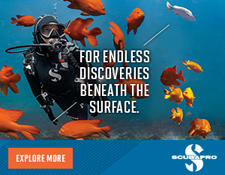
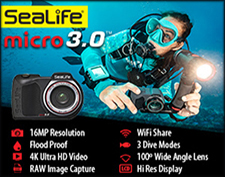
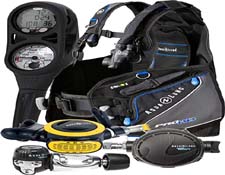


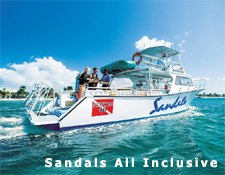
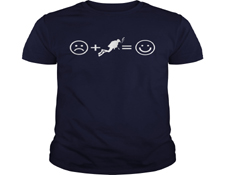
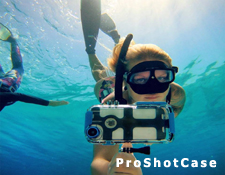
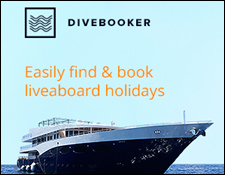
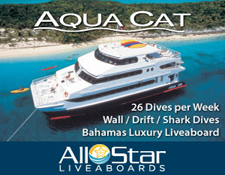
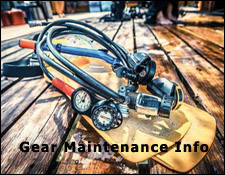


|